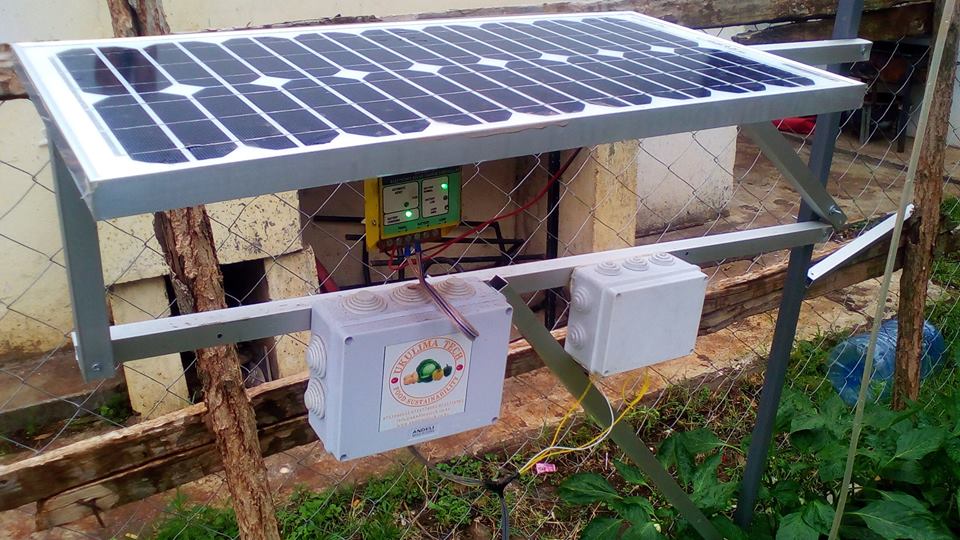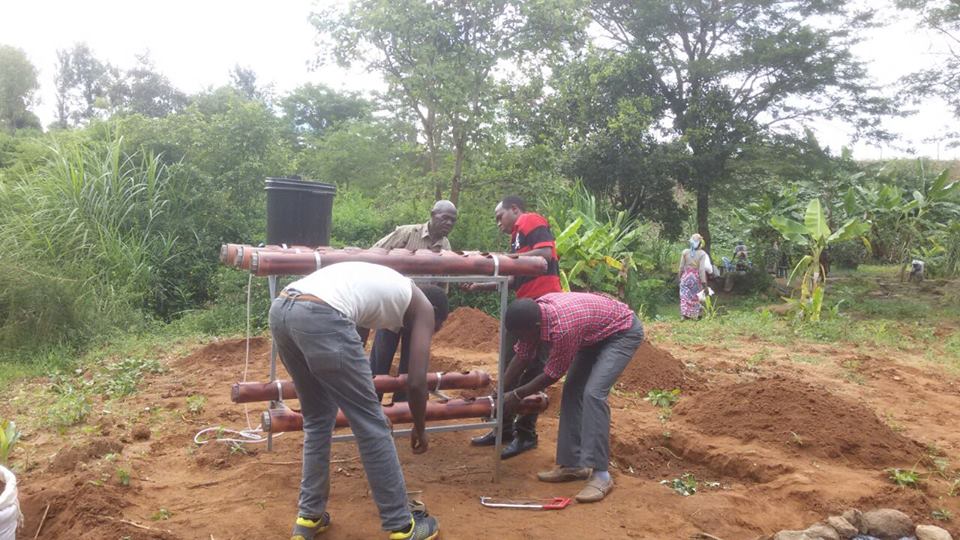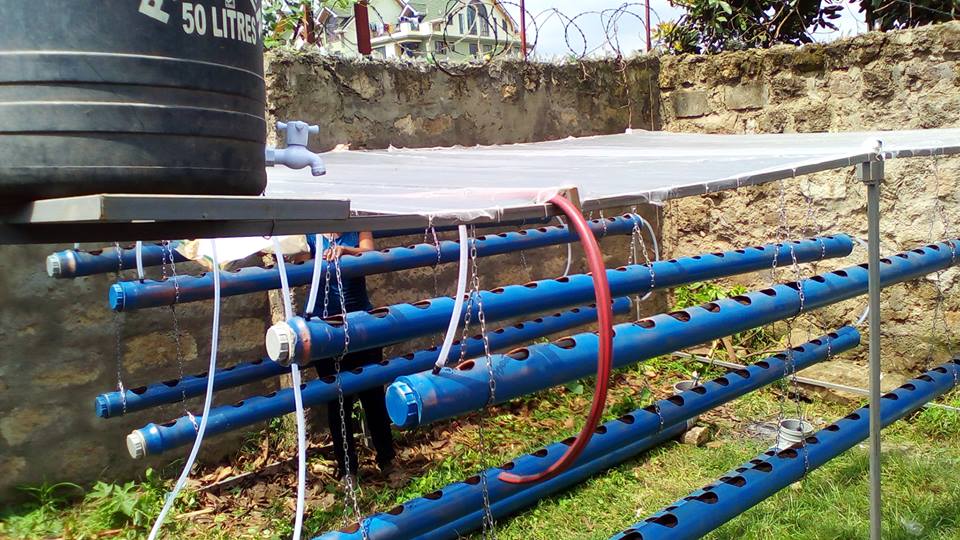By Mary Mwendwa
James Kasee, is a noble farmer in his middle 30s in a remote village in Kitui County with a family of five.He has been experiencing failed crop because of climate change effects which usually leave him hopeless and traumatized.Kitui County is in the eastern part of Kenya and famous for failed rains coupled with drought and famine.
James’ lives recently took a turn when he invested in the vertical gardens technology which he uses to plant vegetables for his family and the rest he sells to his neighbors.
“I used to live a life of misery because the climate here is erratic and very unpredictable, you plant your crops and chances of having a failed crop are so high. Some people in my village starve to death because they have nothing to eat.”
James gives gratitude to a friend of his who came from Nairobi for a visit and recommended the vertical gardens innovation.”At first i was hesitant because i dint own a smart phone and the cost sounded abit high.But my friend convinced me and decided to get some of my savings to invest in the technology.I have never regreted , the technology uses solar energy and less water and then it is controlled with the phone.
The good thing is that smart phones which are basic are not very expensive here.I bought a phone at six thousand Ksh or 60 dollars and went ahead to test the technology which i bought at 25, 000 ksh this came as a whole set for installation and i was showed how to install the Ukulimatech application on my phone which is simple.The beauty of this innovation is that i do not have to worry about rains, it uses minimal water and above all i can control it from any where i go.”He narrated.

The Vertical gardens which use solar energy on an automated mobile phone application have come as a savior to those living in water stressed and less space environments like James.
With erratic and unpredictable rainfall patterns which leave devastating effects to small holder farmers in Sub-Saharan Africa , innovations that will relieve such kind of stress would bring hope to many.
The Intergovernmental Panel on Climate Change (IPCC) has reported a warming of approximately 0.7°C over most of the African region during the twentieth century. This warming occurred at the rate of about 0.05°C per decade, with slightly more warming in the season from June to November than from December to May. A temperature rise of about 0.1°C per decade is expected for the next two decades, even if greenhouse gas and aerosol concentrations are kept at year 2000 levels.
IPCC has reported that extreme events, including floods and droughts, are becoming increasingly frequent and severe. Certain regions of Africa are more prone to such extreme events than others. It is probable that the increased frequency of recorded disasters is a result of a combination of climatic change and socio-economic and demographic changes.
The technology which uses solar energy has vertical gardens that have the normal drip pipes, a supporting structure,an automation module gadget and a battery which makes it simple even for the urban farmer who has no space and would like to attend to his crops from his office comfort or at home without much hustle.
The process works in a simple way where the solar panel which comes depending on the size of the vertical garden stores energy in the battery then using a mobile phone application -Ukulima Tech, one sends a command to the automation module which in turn triggers the water pump to be switched on.Finally water flows through the drip pipes hence watering the crops.
The beauty of this system is that more than 90% of the water goes directly to the plant and the absorption rate is lower as compared to normal absorption of water by the plants. In case of leakage of water or plant drying a notification is sent to the mobile for phone for quick action.
According to Brenda Anne, Administration Manager , Ukulima Tech,”The project which was founded by dedicated team of professionals committed to the ongoing development and installation of world-class vertical garden systems for the production of food in any geographic location or climate including urban set up , was invented last year and got registered this year 2016. This kind of farming is very ideal for people who have no space and also have issues to do with water and do not own farms. Urban populations love this kind of farming because they just place the unit at the back yard and they are set to plant crops of their choice ranging from vegetable .The beauty of this technology one is able to monitor their farm from anywhere and is very ideal for helping reduce climate change shocks as less water is used in the process and the water gets direct to the plant.”She explains.
Brenda continues to explain on how the mobile application works on a easy interface platform which anyone can navigate through as she talks about the cost of the system;
“The basic system which comes with the application, pipes, solar panel, drip pipes costs 25,000 ksh. Planting costs are different and not part of the unit because that has to be decided by the farmer.There are those who need bigger units and other would prefer a small unit.
“This kind of technology currently has sixty farmer already using , they are wide spread in areas like Kitui, North Eastern, Thika and Nairobi.As you can see North Eastern and Kitui are water stressed regions and people are getting more interested in this in those areas.Most of the plants planted are kales, strawberries and indigenous vegetables.”
Advantages of this vertical gardens include; it maximizes on space, easy to manage, very organic and less water used.However this system is not able to detect pests and diseases and therefore the farmer is advised to spray crops in case they see pests and any infection.















